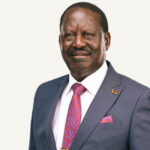The resume is our cover letter. That it be well written, be clear, go straight to the point, show part of the candidate’s personality and awaken something in the interviewer is something that seems very simple but in reality, it can cause many headaches, because trying to synthesize a long career or showing on a single sheet how prepared you are for the position, requires extra skills beyond those necessary to work in the position for which you are applying.
To make it easier, the advisers of the Office of Professional Services of Harvard University, through CNBC, have published five very serious errors that have been detected in this type of document and that, according to them, should be avoided in any resume so as not to be immediately eliminated from a selection process. These are the five serious failures and some tips from the experts to verify that they are not being incurred:
1. Include spelling or grammatical errors
This is practically unforgivable. If you want to get a professional job, you must write like a professional. Many times the importance of spelling and grammar is ignored, sometimes detracting from them because employment is not related to this field, however, human resources professionals pay close attention to how a resume is written, since the care of spelling means that the candidate pays attention to detail and takes care of his communication.
Some of the most common examples of this type of failure are skipping words, a sign of having written quickly or not having reviewed it, or writing in the present tense when talking about a past job. In the first case, experts recommend that you always share the document with a friend, family member or colleague before presenting it to any job offer: four eyes see more than two; and in the second, keep a clear mind when writing: to refer to the current position, write in the present, for a position that has been previously occupied, use the verbs in the past.
2. Use passive sentences
The liability does not meet the basic requirements of a resume, as it does not facilitate easy reading. For this reason, the experts from the Harvard Professional Services recommend using the active voice and, when possible, using convincing words that demonstrate action such as “promoted” and “achieved”.
3. Errors in contact information
Contact information is essential for communication between the company and the candidate, so it should appear at the top of the CV. According to Harvard experts, including the full name (in large and bold), the address (so they know where you are), email, and a phone number are generally sufficient, although in some cases, if they are has a personal website, it is also convenient to include a link here.
On the contrary, not in all cases it is necessary to attach a photo, because according to they maintain, the person in charge of the company will surely be in charge of looking for the candidate on Linkedin in case it interests them, as well as a list of references, since it is given of course they are available and if necessary they will be asked for in a more advanced part of the process, not in the first contact.
4. A chaotic structure
The fourth mistake is not organizing the information well. It is recommended to avoid the use of an excessive number of colors and pictograms. The reality is that a clear and concise resume in black and white can impact more than one excessively overloaded. The important thing is that it is easy to read and follow, that it has bold and italics that highlight what is important and that, if necessary, you choose to list with dots or bobbins instead of letters or numbers.
A good trick to avoid clutter is, in the ‘Experience’ section, start with the position you currently hold and continue chronologically back in time and another, and not least, check that when exporting to PDF (the best format to send this type of document) the design has not been misplaced, something that is easy to happen and that can unmount all previous work.
5. Going long
“What little likes, how much tires … and the repetitive bores.” As the saying goes, it is advisable not to go overboard and bore the person in charge of human resources or a future boss with absolutely every detail of the training available or of the achievements achieved in previous positions. Unless you are applying for an executive position, it is best that you do not turn the page and under no circumstances exceed two. Of course, do not use abbreviations to get not to exceed the limits. The information must be synthesized but always be understandable.














